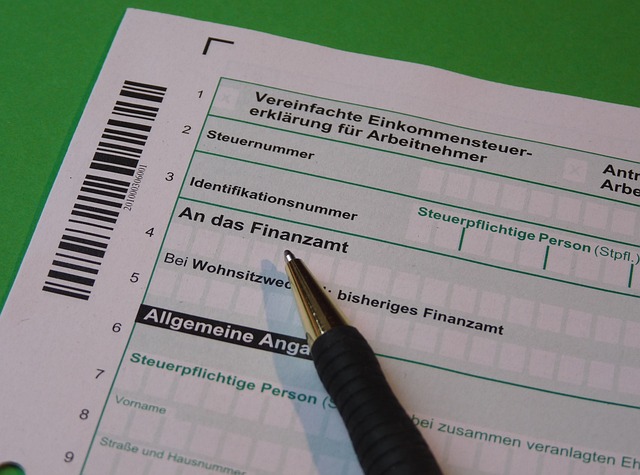When dealing with the intricate details and specialized terminology found in UK Corporate Tax Documents, precision and expertise are paramount. A reliable UK Corporate Tax Documents translation service should have certified translators with professional qualifications in accounting or finance, ensuring native fluency in the target language and adherence to international standards for document translation. These specialists are equipped to handle financial data accurately while maintaining strict confidentiality and data protection protocols. Additionally, they offer transparent workflows and clear communication for any adjustments needed, allowing businesses to ensure compliance and maintain the integrity of their financial disclosures across various jurisdictions. This level of professionalism and commitment to quality is essential for accurate translations that can impact regulatory adherence and international business operations.
UK corporations operating in a multilingual landscape face a critical challenge: ensuring their tax reports resonate accurately across different languages. This article delves into the indispensable role of professional translation services in adhering to compliance standards for corporate tax documents. We will explore the nuances of UK Corporate Tax Documents translation, from understanding the essentials of accurate translations to implementing best practices for selecting reliable service providers. By examining key components of a corporate tax report and common pitfalls in financial document translation, businesses can navigate the complexities of international tax reporting with confidence. Join us as we dissect case studies that highlight the success of compliance through effective translation, ensuring your tax reports are both precise and globally inclusive.
- Understanding the Necessity of Accurate Translations for UK Corporate Tax Documents
- Overview of UK Corporate Tax Reporting Requirements
- The Role of Professional Translation Services in Compliance
- Identifying the Key Components of a Corporate Tax Report
- Common Pitfalls in Translating Financial Documents and How to Avoid Them
- Best Practices for Choosing a UK Corporate Tax Document Translation Service
- Ensuring Consistency and Precision in Multi-language Tax Reports
- Case Studies: Successful Compliance Through Effective Tax Report Translation
Understanding the Necessity of Accurate Translations for UK Corporate Tax Documents

When it comes to corporate tax reporting, accuracy and compliance are paramount for UK-based entities, particularly those with international operations or non-English speaking stakeholders. The translation of UK Corporate Tax Documents is not a mere linguistic exercise but a critical legal and financial function. Translated documents must convey all the nuances of the original text without distortion or loss of meaning to ensure regulatory compliance. This is where specialized UK Corporate Tax Documents translation services become indispensable. These services, staffed by professionals with expertise in both tax law and language, provide precise translations that meet legal standards and reflect the true intent of the source material. The use of such services mitigates the risk of misinterpretation or non-compliance, which could lead to costly audits, penalties, or even legal challenges. Furthermore, these translation services are adept at handling sensitive financial data with confidentiality, ensuring that proprietary information remains secure throughout the translation process. By leveraging the capabilities of UK Corporate Tax Documents translation services, companies can navigate the complexities of tax reporting across languages with greater confidence and assurance.
Overview of UK Corporate Tax Reporting Requirements

UK corporate entities are mandated to adhere to specific reporting requirements set forth by Her Majesty’s Revenue and Customs (HMRC). These obligations encompass the preparation and submission of UK Corporate Tax Documents, which accurately reflect the company’s financial position and activities. The process involves meticulously translating these documents into the required language for entities operating in multinational contexts or dealing with foreign stakeholders. The translation must be precise to ensure that the information complies with both UK tax regulations and the legal standards of the target language jurisdiction. Utilising professional UK Corporate Tax Documents translation services is crucial to navigate these complexities, as they guarantee the accuracy and legality of the translated content, thereby safeguarding the company’s fiscal integrity and compliance status. These services not only facilitate the clear communication of financial data but also enable companies to maintain transparency and accountability in their international dealings. By leveraging the expertise of these translation professionals, businesses can confidently meet their reporting obligations in a manner that is understandable to all relevant parties, regardless of language barriers.
The Role of Professional Translation Services in Compliance

In the context of maintaining legal and financial integrity, professional translation services play a pivotal role in ensuring that UK Corporate Tax Documents are accurately and compliantly translated. The precision required in translating corporate tax documents is not merely a matter of linguistic proficiency but also an understanding of the complex tax legislation and regulations specific to each jurisdiction. Expert translators, who specialize in legal and financial translations, bring a nuanced approach to this task, interpreting technical terminology and ensuring that every figure, clause, and footnote is conveyed with exactitude. This meticulous attention to detail is crucial for multinational corporations operating across borders, as it guarantees that their tax obligations are fulfilled without compromising on accuracy or compliance. By leveraging the expertise of these services, businesses can navigate the intricate landscape of international tax regulations with confidence, knowing that their translated documents will stand up to scrutiny by regulatory authorities.
The choice of a reputable UK Corporate Tax Documents translation service is not just about adhering to legal requirements but also about safeguarding a company’s reputation and financial stability. These services are equipped with advanced translation technologies and industry-specific knowledge, which together help to mitigate the risks associated with miscommunication or errors in translated documents. Moreover, these translation services often provide additional support, such as proofreading by subject matter experts and certification of translations, ensuring that the final document not only communicates effectively but also meets all legal standards and regulatory compliance demands. This level of professionalism and commitment to accuracy underscores the importance of selecting a provider with a proven track record in handling sensitive financial documents.
Identifying the Key Components of a Corporate Tax Report

Organizations operating in multilingual environments must navigate the complexities of ensuring their corporate tax reports are accurately communicated across different languages. A key component of this process is the translation of UK Corporate Tax Documents, which requires a deep understanding of both the linguistic nuances and the technical vocabulary inherent in tax legislation. These documents encompass various elements such as the computation of taxable profits, details of tax credits, deductions, and reliefs applicable to the company, as well as the declaration of direct and indirect taxes owed. The translation must be precise and faithful to the original text to maintain compliance with legal standards and financial reporting requirements.
To accurately translate UK Corporate Tax Documents, specialized translation services are indispensable. These service providers often employ subject matter experts who are not only proficient in the relevant languages but also well-versed in accounting principles and tax regulations. This expertise ensures that the translated documents reflect the same meaning and intent as the original reports. Furthermore, these services often include a review process to verify the accuracy of both the translation and the financial data presented. By leveraging UK Corporate Tax Documents translation services, companies can confidently communicate their financial obligations in any language while maintaining regulatory compliance and transparency with tax authorities.
Common Pitfalls in Translating Financial Documents and How to Avoid Them

When translating financial documents such as UK corporate tax documents, accuracy and precision are paramount due to the complex nature of the content. Common pitfalls in this process include misunderstandings of industry-specific terminology, misinterpretation of financial concepts, and oversights in regulatory requirements. To mitigate these issues, it is essential to employ translators with specialized knowledge in both the source and target languages, as well as a deep understanding of financial and taxation systems. Utilizing UK corporate tax documents translation services that offer expert linguists and industry-specific knowledge can significantly reduce the risk of errors. These service providers often have established quality assurance processes, which include reviews by subject matter experts to ensure the translations are not only linguistically correct but also reflective of the original intent and numerical accuracy. Furthermore, maintaining a glossary of terms tailored to the financial sector and adhering to best practices in translation can further enhance the reliability of the translated documents. By leveraging the expertise of seasoned UK corporate tax documents translation services, businesses can navigate the intricacies of cross-border communication with confidence, ensuring that their financial disclosures are compliant and accurately conveyed to all stakeholders involved.
Best Practices for Choosing a UK Corporate Tax Document Translation Service

When tasked with translating UK corporate tax documents, selecting a reliable and skilled translation service is paramount. The accuracy and compliance of these translations are critical, as they often involve complex financial terminology and legal requirements. A competent UK corporate tax document translation service should possess specialized expertise in both the language pairs required and the intricacies of UK corporate tax law. Look for providers that offer a portfolio of certified translators with professional qualifications in accounting or finance, coupled with native-level proficiency in the target language. These experts are adept at navigating the nuances of tax legislation and can ensure that all financial data is accurately conveyed. Additionally, they should be well-versed in international standards for document translation to maintain the integrity of the information across different jurisdictions. It’s also advisable to choose a service that provides a sample translation or a trial service to assess their capabilities firsthand. This will give you confidence in their ability to meet your specific needs and deadlines without compromising on quality or compliance.
In the realm of UK corporate tax document translation, confidentiality and data protection are non-negotiable. The chosen service should adhere to stringent privacy protocols to safeguard sensitive financial information throughout the translation process. Furthermore, they should offer a transparent workflow with clear communication channels for any inquiries or necessary adjustments during the project. This level of professionalism and commitment to client confidentiality is indicative of a reliable service provider that understands the gravity of their role in the corporate tax domain. By adhering to these best practices, businesses can ensure that their UK corporate tax documents are accurately translated, compliant with legal standards, and protected from unauthorized access.
Ensuring Consistency and Precision in Multi-language Tax Reports

Companies operating in multilingual or international contexts must navigate the complexities of tax reporting with precision and consistency, especially when it comes to UK Corporate Tax Documents. The translation of these documents is not merely a matter of linguistic accuracy but also one of legal fidelity. Ensuring consistency across all translated corporate tax reports is paramount to maintain trust with regulatory bodies and to avoid any misinterpretations that could lead to legal complications or financial penalties. Translators specializing in UK Corporate Tax Documents translation services must be well-versed in both the source and target languages as well as the intricate details of tax legislation. They must employ advanced techniques to guarantee that numerical data, tax computations, and all relevant information are accurately conveyed without any loss of meaning or precision. This is crucial because even minor discrepancies can have significant repercussions for the company’s compliance status.
Precision in translation is not only about the exact rendition of words but also about understanding the context in which these documents operate. The nuances of tax law, including double taxation treaties and local jurisdiction regulations, must be considered to ensure that the translated reports are not only linguistically sound but also legally accurate. Utilizing professional UK Corporate Tax Documents translation services can significantly reduce the risks associated with inaccuracies or oversights in the translation process. These services often provide a quality assurance mechanism where translations undergo a comprehensive review, including by tax professionals, to ensure that all aspects of the reports are correctly translated and fully compliant with legal standards in the target language. This level of attention to detail is essential for companies looking to operate transparently across different jurisdictions and for maintaining their fiscal integrity and reputation.
Case Studies: Successful Compliance Through Effective Tax Report Translation

Companies operating in multinational contexts must navigate the complexities of tax compliance across different jurisdictions, a task made more intricate when corporate tax documents require translation. For instance, a UK-based corporation with subsidiaries in France and Germany must ensure that its tax reports are accurately translated to comply with each country’s regulatory standards. A case study from a leading electronics firm illustrates this point effectively. The company’s UK operations generated substantial revenue from international sales. To remain compliant, the firm engaged specialized UK Corporate Tax Documents translation services to render their annual tax reports into French and German. This strategic move not only demonstrated adherence to local regulations but also facilitated clearer communication with national tax authorities. As a result, the company successfully navigated the multifaceted requirements of each country’s tax code without incurring penalties or legal complications associated with non-compliance. This exemplifies how effective translation services for corporate tax documents can be instrumental in maintaining regulatory compliance and fostering transparent interactions with global tax authorities.
In concluding our discussion on the intricacies of translating UK Corporate Tax Documents, it is clear that precision and compliance are paramount. The meticulous approach outlined in this article, from understanding the critical nature of accurate translations to recognizing the pivotal role of professional translation services, underscores the importance of a seamless communication process across linguistic boundaries. Companies must identify key components within corporate tax reports and employ best practices when selecting a translation service to ensure consistency, clarity, and adherence to legal standards. The case studies presented demonstrate the tangible benefits of diligent translation efforts, highlighting successful compliance outcomes. As such, organisations should prioritise UK Corporate Tax Documents translation services that guarantee accuracy and expertise, thereby safeguarding their financial integrity and regulatory obligations.
